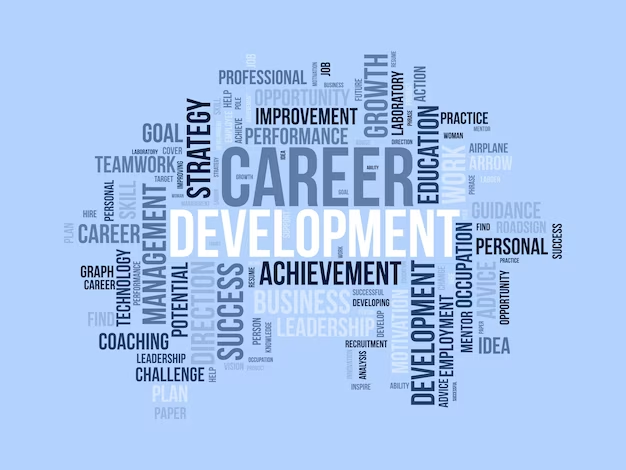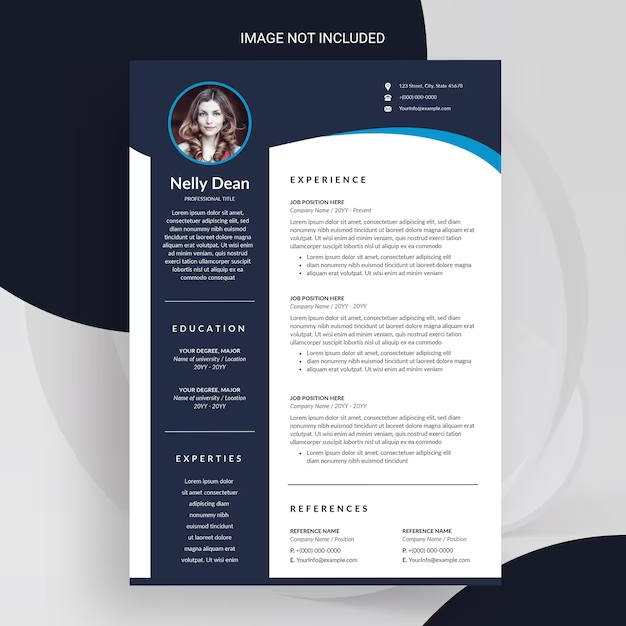Master the Art of Interviews: Impress Employers and Land Your Dream Job
In today’s competitive job market, mastering the art of interviews is crucial to stand out from the crowd and land your dream job. Interviews provide employers with an opportunity to assess your skills, experience, and fit for the role, making it essential to leave a lasting impression. A well-executed interview can be the difference between receiving a job offer or being passed over for another candidate. By understanding the importance of interviews and investing time in preparation, you can significantly increase your chances of success.
Interviews serve as a platform for employers to gauge your suitability for the job. They allow hiring managers to assess your interpersonal skills, problem-solving abilities, and cultural fit within the organization. A positive interview experience can leave a lasting impression and make you a memorable candidate.
To master the art of interviews, start by researching the company and the role you are applying for. Familiarize yourself with the company’s values, mission, and recent achievements. This knowledge will enable you to align your answers with the organization’s goals, demonstrating your interest and commitment. Additionally, prepare a list of key skills and experiences that make you a strong candidate for the role. This will help you articulate your strengths and unique selling points during the interview.
Types of Interviews: Phone, Video, and In-Person
As technology continues to shape the hiring process, it is essential to be well-prepared for different types of interviews. Phone, video, and in-person interviews each have their unique challenges and require specific strategies to ensure success.
Phone interviews are typically used as a screening tool to assess your qualifications and fit for the role. Since phone interviews lack the visual cues present in face-to-face interactions, it is crucial to focus on your tone of voice and clarity of speech. Prepare for phone interviews by reviewing common interview questions and practicing concise and articulate responses. Additionally, eliminate distractions and find a quiet space to conduct the interview, ensuring that you can give your full attention to the conversation.
Video interviews have become increasingly popular, especially in remote work environments. Treat video interviews as you would an in-person interview, dressing professionally and creating a suitable backdrop. Test your audio and video settings beforehand to avoid technical issues. Maintain eye contact by looking directly into the camera, and remember to smile and engage with the interviewer. Practice answering questions in front of a camera to become comfortable with the format.
In-person interviews provide the opportunity to showcase your interpersonal skills and make a personal connection with the interviewer. Dress professionally, arrive early, and bring multiple copies of your resume and any relevant documents. Pay attention to your body language, maintaining good posture and making eye contact. Show enthusiasm and actively listen to the interviewer’s questions, providing thoughtful and concise answers. Remember to follow up with a thank-you note expressing your appreciation for the opportunity to interview.
Common Interview Questions and How to Answer Them Effectively
During interviews, employers often ask common questions to assess your qualifications, motivations, and problem-solving abilities. By preparing thoughtful and concise answers, you can demonstrate your suitability for the role and leave a lasting impression.
One common question is, “Tell me about yourself.” This question provides an opportunity to showcase your experience and highlight relevant achievements. Start by giving a brief overview of your professional background, focusing on skills and experiences that align with the role you are applying for. Highlight your accomplishments, demonstrating how they can benefit the prospective employer. Conclude by expressing your enthusiasm for the opportunity to contribute to the company’s success.
Another common question is, “Why do you want to work for our company?” This question tests your knowledge of the organization and your alignment with its values. Showcasing your research, mention specific aspects of the company that resonate with you, such as its culture, mission, or recent accomplishments. Explain how these align with your own values and career goals. By demonstrating a genuine interest in the company, you can differentiate yourself from other candidates.
“Tell me about a time when you faced a challenge at work and how you resolved it” is a common behavioral question. When answering behavioral questions, use the STAR method (Situation, Task, Action, Result). Start by describing the specific situation or challenge you faced. Then, explain the task or goal you aimed to achieve. Detail the actions you took to address the challenge, highlighting your problem-solving skills and decision-making abilities. Finally, share the positive outcome or result of your efforts. This structured approach allows you to provide a comprehensive and concise answer.
Behavioral Interview Questions and How to Showcase Your Skills
Behavioral interview questions are designed to assess your past behavior and how you would likely respond in similar situations in the future. These questions provide employers with insights into your problem-solving abilities, communication skills, and ability to work well in a team. By preparing and showcasing relevant examples, you can demonstrate your skills and differentiate yourself from other candidates.
When faced with a behavioral interview question, start by carefully listening to the question and taking a moment to gather your thoughts. Select an example from your past experiences that aligns with the question and demonstrates your abilities. Structure your response using the STAR method, emphasizing the specific situation, the task or challenge you faced, the actions you took, and the positive results you achieved. Highlight your problem-solving skills, communication abilities, and the impact of your actions on the team or organization.
To effectively showcase your skills, focus on providing specific and tangible examples. Quantify your achievements whenever possible, using numbers or percentages to demonstrate the impact of your actions. Highlight any recognition or positive feedback you received for your contributions. By providing concrete evidence of your skills and accomplishments, you can make a strong impression on the interviewer.
Remember to remain humble and avoid exaggerating your achievements. Be honest about any challenges or obstacles you faced and how you overcame them. Employers value authenticity and want to understand how you handle difficult situations.
Strategies for Showcasing Your Strengths and Unique Selling Points
To impress employers during interviews, it is essential to effectively showcase your strengths and unique selling points. By aligning your skills and experiences with the needs of the role, you can demonstrate your value and stand out from other candidates.
Start by identifying your key strengths and unique selling points. These can include technical skills, soft skills, or specific experiences that are relevant to the role. Once you have identified them, find ways to incorporate these strengths into your answers throughout the interview. Look for opportunities to provide examples that highlight these strengths and demonstrate their value to the prospective employer.
When discussing your strengths, be confident but avoid sounding arrogant. Focus on how your strengths can benefit the company and contribute to its success. Use specific examples to illustrate how you have applied these strengths in previous roles and the positive outcomes you have achieved.
Additionally, tailor your answers to showcase your unique selling points. Consider what sets you apart from other candidates and how these qualities can bring value to the role and the organization. Highlight any unique experiences, certifications, or achievements that demonstrate your commitment to professional growth and development.
By effectively showcasing your strengths and unique selling points, you can leave a lasting impression on employers and position yourself as a top candidate for the job.
Body Language and Non-Verbal Communication During Interviews
In addition to verbal communication, body language and non-verbal cues play a critical role in the interview process. Employers often assess candidates based on their presence, confidence, and ability to connect through non-verbal communication. By being mindful of your body language, you can convey professionalism and make a positive impression.
Start by maintaining good posture throughout the interview. Sit up straight, keep your shoulders relaxed, and avoid slouching. This posture conveys confidence and engagement.
Make eye contact with the interviewer to establish a connection and demonstrate active listening. Avoid staring or looking away too frequently, as this may come across as disinterest or lack of confidence. Instead, maintain natural eye contact, occasionally breaking it to avoid excessive intensity.
Gestures can also convey your engagement and enthusiasm. Use your hands to emphasize key points or to illustrate concepts, but avoid excessive or distracting movements. Be mindful of your facial expressions, aiming for a friendly and approachable demeanor. Smile genuinely to convey warmth and a positive attitude.
Finally, be aware of your personal space and respect the interviewer’s boundaries. Avoid invading their personal space by standing too close or touching them without consent. Being mindful of these non-verbal cues can contribute to a positive interview experience.
Interview Mistakes to Avoid and How to Recover from Them
Even with thorough preparation, interview mistakes can happen. It is essential to be aware of common pitfalls and know how to recover gracefully if you make a misstep during the interview.
One common mistake is speaking negatively about a previous employer or colleague. Avoid badmouthing anyone, as it reflects poorly on your professionalism and ability to work well with others. Instead, focus on the positive aspects of your previous experiences and what you learned from challenging situations.
Another mistake is providing vague or generic answers to questions. Employers value specific and detailed responses that demonstrate your abilities and experiences. Be prepared to provide concrete examples and quantify your achievements whenever possible. If you catch yourself giving a vague answer, take a moment to gather your thoughts and provide a more specific response.
Nervousness and lack of confidence can also hinder your interview performance. To overcome this, practice mock interviews with friends or family members. This will help you become more comfortable answering questions and build your confidence. Taking deep breaths before the interview and reminding yourself of your strengths can also help calm nerves.
If you make a mistake during the interview, such as forgetting an answer or stumbling over your words, don’t panic. Take a deep breath, regain your composure, and ask for a moment to collect your thoughts. It is better to take a brief pause and provide a thoughtful response than to rush into an answer that may not accurately reflect your abilities.
Remember that everyone makes mistakes, and employers understand this. What matters most is how you recover from them and demonstrate your ability to adapt and learn from your experiences.
Resources for Further Interview Preparation and Practice
To further enhance your interview skills, there are several resources available that can provide valuable insights and opportunities for practice.
Online platforms offer a wealth of information and resources. Websites such as Glassdoor and LinkedIn provide access to interview questions and insights shared by candidates who have interviewed with specific companies. Utilize these resources to gain a better understanding of the interview process and the types of questions commonly asked.
Additionally, many organizations offer interview preparation courses and workshops. These programs provide guidance on answering different types of interview questions, improving your communication skills, and mastering your body language. Research organizations in your field or local community that offer such programs, and consider enrolling to enhance your interview skills.
Practice is key to mastering the art of interviews. Utilize resources such as mock interview platforms or enlist the help of friends or family members to conduct practice interviews. This will help you familiarize yourself with common interview questions, refine your responses, and build confidence in your abilities.
Conclusion
Mastering the art of interviews is a crucial step towards impressing employers and landing your dream job. By understanding the importance of interviews, preparing effectively, and showcasing your strengths, you can differentiate yourself from other candidates and leave a lasting impression. Remember to be mindful of your body language and non-verbal cues, and avoid common interview mistakes. With thorough preparation, practice, and the right mindset, you can navigate the interview process with confidence and increase your chances of securing your ideal job. Take the time to invest in your interview skills, and open the doors to endless career opportunities.




